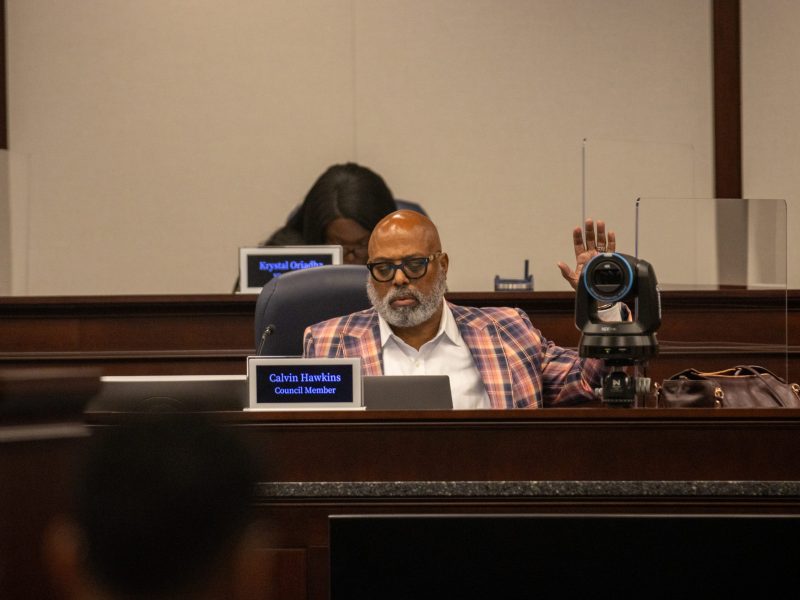Maryland lawmakers heard arguments Thursday on a bill that would overhaul how the state handles disputes over public records requests — a bill the University of Maryland is advocating against.
House Bill 183 would expand the roles a compliance board and mediator play in addressing complaints related to the Maryland Public Information Act, the law that governs how Marylanders can obtain copies of public records. The House of Delegates’ Health and Government Operations Committee held the hearing on the bill Thursday.
The bill’s proponents say it would improve state agencies’ compliance with the law and avoid costly court fights between requestors and state entities. Representatives from four different universities — including a lawyer from this university — testified against the bill, saying that the law already works and warning of a flood of burdensome record requests if the bill passes.
“I really believe that faith in government is strengthened when our constituents have access to see and read about what our government is doing,” said Del. Brooke Lierman (D-Baltimore City), the bill’s sponsor, adding that such access is even more important during a pandemic. “Our democracy absolutely depends on an informed electorate, and no electorate can be informed without access to public government information.”
[Maryland groups rally to ensure legal representation for those facing deportation]
The bill — called the Equitable Access to Records Act — primarily deals with two existing entities: the Public Access Ombudsman and the State Public Information Act Compliance Board.
As the law currently stands, the ombudsman arbitrates disputes between those requesting public records and the state officials who handle requests, known as custodians.
The ombudsman serves as the mediator in those disputes, and they cannot issue binding decisions. The compliance board can issue binding decisions, but only on disputes concerning the fees that requestors must pay to public entities.
The proposed legislation would expand the compliance board’s jurisdiction beyond fee-related disputes. Any complaint that cannot be resolved by the ombudsman’s mediation could be submitted for review to the board, which could issue binding decisions.
For example, people who submitted records requests and feel they were improperly denied could have the chance to petition the board to have the custodian release those records. Custodians, on the other hand, could ask the board to let them ignore requests determined to be “frivolous, vexatious, or in bad faith.”
Either party would still have the option of pursuing a legal case outside of this process and, in many cases, would be able to appeal compliance board decisions in court.
The legislation would also require records custodians to “adopt a certain policy of proactive disclosure,” as well as issue annual reports with data related to how they handled information requests.
Under the requirements, state records holders would, “to the extent practicable,” publish the kinds of material agencies know are available to the public, such as quarterly reports, but are not yet made available except by a Public Information Act request.
[Maryland lawmakers discuss climate change, environmental justice at virtual hearing]
Laura Anderson Wright, this university’s associate general counsel, urged the committee to reject the bill, saying that it would open custodians like her to a flood of records requests and saddle them with onerous reporting requirements.
The university estimated that it would cost an additional $775,000 to comply with the law’s new provisions in the first year alone, she said.
“I believe strongly in the mission of the Public Records Act and believe that the law as currently written provides adequate remedies for requestors,” she said at the hearing.
Currently, when a public entity denies a records request — often related to the law’s numerous, and sometimes vague, exemptions — the requestors are often left with no choice but to pursue an expensive lawsuit or give up, said Rebecca Snyder, executive director of the Maryland-Delaware-DC Press Association, who testified at Thursday’s hearing.
While journalists represent a significant number of those pining for access to government documents, many average citizens do so as well, and they are being failed by the current system for resolving disputes, Snyder said.
“As a private citizen, trying to find out information about a government of action that affects me, … it’s gonna have to be a really big effort for me to go to court,” she said. “Citizens usually don’t have the wherewithal to do that. They don’t have the know-how.”
Darren Wigfield, a member of the compliance board, and Lisa Kershner, the ombudsman, were among those that joined Snyder in testifying in support of the bill. The compliance board unanimously backed the legislation, Wigfield said.
There are “systemic issues” related to the Public Information Act, Kershner said. State agencies have received increasingly “voluminous” records requests but lack the tools necessary to retrieve those records in a timely manner, she added.
But another problem, Kershner said, relates back to the fact that — with the exception of fee disputes — custodians can get away with not participating in the dispute resolution process.
“There just are no consequences,” she said.



